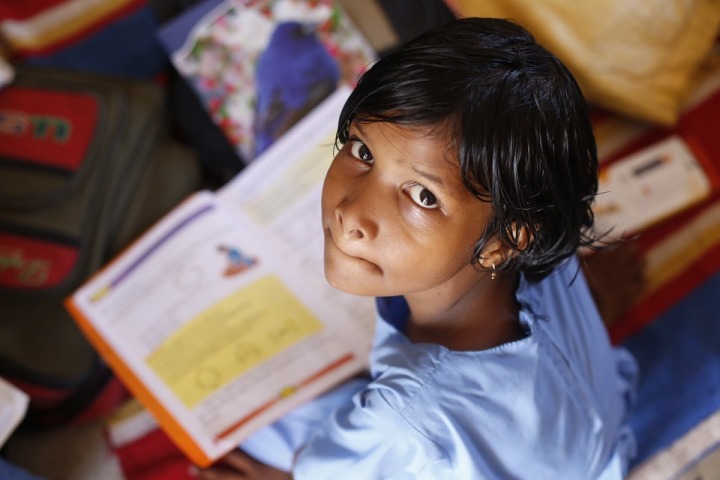Time to ensure our girls aren’t left behind due to Covid

- Country:
- India
Around the world the Covid-19 pandemic has been one of the biggest disruptors of education in our history, at its peak forcing 1.6 billion children and youth out of school, exacerbating the existing crisis.
Girls living in developing countries have been disproportionately affected, put at a greater risk of gender-based violence and child marriage.
We are now facing a lost generation of girls who may never start or return to school.
The impact of Covid-19 on education in India will be long term, particularly for girls. Girls from the poorest families are more likely to have increased childcare and domestic responsibilities which can reduce attendance and lead to dropouts. Some 320 million children have been impacted by the closure of India’s schools. Despite some online provision, many children have withdrawn from schooling as they are unable to access learning, cannot afford fees, or shoulder greater household responsibilities. Both the UK and India have been working together to ensure girls are able to complete their schooling to ensure as smooth a transition as possible to the workforce. One of the successes of this partnership is the British Council’s work with the Central Board of Secondary Education to improve assessment and curricula in 25,000 CBSE schools.
Educating all girls everywhere is not just the right thing to do, it is one of the smartest investments we can make to lift people out of poverty, grow economies, save lives, and build back better from Covid-19.
That’s why world leaders at the UK-hosted G7 Summit (June 11-13) agreed with ambitious global targets to get more girls into school and learning. This included a pledge to increase their support to the Global Partnership for Education (GPE) in time for the Global Education Summit, co-hosted by the UK and Kenya in July. The UK announced a commitment of £430 million. Since our last pledge, the UK has increased its contribution to the GPE by 15%.
This crucial investment will provide real, practical support to the 1.1 billion children in the 90 lower-income countries that GPE work in over the next five years. In time, GPE aims to train 2.2 million more teachers, build 78,000 new classrooms and buy 512 million textbooks, transforming educational opportunities for children in the world’s poorest countries. Over the last 19 years, GPE has contributed to the largest expansion of primary and lower secondary schooling in history. It is a partnership made up of world experts in the field of education.
We are pleased to be working alongside the Government of India as it continues to make excellent progress on girls’ education through initiatives like ‘Beti Bachao Beti Padhao’. This is one of Prime Minister Modi’s central campaigns to empower and educate girls. India has also made significant progress in enrolment and access to education for all through its National Education Policy 2020.
Nelson Mandela said that “Education is the most powerful weapon which you can use to change the world”. He was right. Quality education transforms not just the lives of girls, but whole communities and nations.
The Covid-19 pandemic has shown us how interconnected we are. Girls’ education is no different. It matters to us all. By boosting girls’ access to education, together, we will turbocharge a better, safer, healthier world for everyone.
About the Author - Jan Thompson was appointed British Deputy High Commissioner to India in August 2018 – she’s currently serving as Acting High Commissioner to India. She was Ambassador to the Czech Republic from 2013-2017 and then, temporarily, as Deputy High Commissioner to Canada prior to her arrival in New Delhi. Previous postings have included Germany (1992-1994) and the UN Security Council in New York (1997-2000). Jan likes mountaineering (she has climbed Kilimanjaro and to Everest Base Camp) and is a semi-professional actress with a particular passion for Shakespeare. She speaks French, German and Czech, and is now embarking on Hindi.
(Devdiscourse's journalists were not involved in the production of this article. The facts and opinions appearing in the article do not reflect the views of Devdiscourse and Devdiscourse does not claim any responsibility for the same.)










